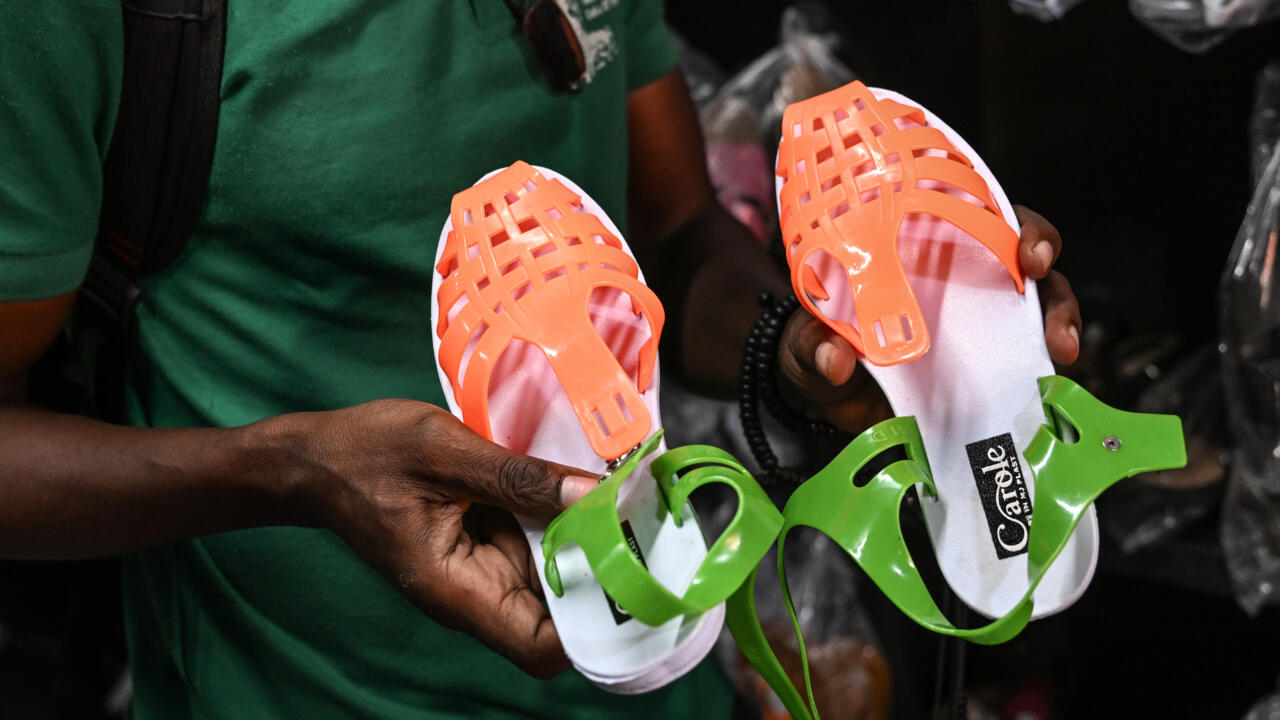
In Abidjan, the rainy season ends but we never put away our “lêkê”: called “jellyfish” in France, these open plastic shoes, water-resistant and inexpensive, have become a symbol of identity Ivorian culture.
“Everyone wore lêkê,” says Rokia Daniogo, a 33-year-old trader, sitting on a street corner in the huge market in the Treichville district, where hundreds of stalls overloaded with goods and various objects.
“All children wear the lêkê, even babies,” she adds. “They go to play ball with it, they go to school with it,” explains this mother of four children who “all” have been wearing them since they could walk. And “they like it,” she insists.
“We already wore that when we were little,” confirms Patrick Nguessan, wandering between the stands, even if he finds them “uncomfortable” today.
A few meters from Rokia Daniogo, Ousmane Kaba sells them and wears a white pair “every day”. “I feel comfortable in it,” he says, and “it sells well,” especially to young people “aged 18 to 35” like him, “and during the rainy season.” From May to September, violent storms sometimes bring torrential rain, making some streets impassable.
The “lêkê” – French designed shoes born after the Second World War, part of which is made in Ivory Coast and the other imported – have been sold on Ivorian markets “for 30 or 40 years”, before the arrival of flip-flops in the country, according to Mounir Ben, trader.
But the global success of flip-flops has not succeeded in destroying the “lêkê”, which have become a symbol of the country’s identity.
“In Senegal and Mali, there are flip-flops, but in Côte d’Ivoire they’re very popular,” confirms Samba Basse, a Senegalese shopkeeper.
Ivorian fashion critic Emmanuelle Keïta also traces the origins of “lêkê” back to the 1980s, at the feet of those with “little financial means”.
“People who made zouglou (an urban musical genre whose early singers denounced the precariousness of student life) had lêkê on their feet, and zouglou remains the country’s best-known musical identity”, she says.
“For me, it’s an essential fashion accessory for the grouilleur, for the guy who fights, who works a lot”, but who is poor, explains the stylist.
Like the apprentices of the “gbaka”, the minibuses that serve Abidjan and the surrounding area.
These young men, trained by the drivers, spend their journeys clinging to the rear doors of the vehicles, from which they regularly disembark to chase customers at every stop, “lêkê” on their feet.
Their price is the first factor in their success: they cost an average of 1,000 CFA francs, or 1.50 euros.
The models are varied: plain, transparent, patterned, in the national colors (orange, white and green), bearing the names of footballers such as Basile Boli of France or Lionel Messi of Argentina. All social classes wear them.
“When you’re poor, people think that’s all you’ve got”, but “when you’re rich, it makes you look cool and humble”, explains Emmanuelle Keïta.
The most expensive “lêkê” sold by Mounir Ben cost 2,000 francs (3 euros). These are the “benguistes”, a mocking name given by Ivorians to Africans expatriated to Europe, who are supposed to have money. Their soles are thicker, adapted to the curves of the feet, “more resistant”, and “do not slip” according to him.
But luxury brands have gone much further: Gucci offers a pair for 400 euros, while Prada’s wedge version costs 500 euros.
Disclaimer: Ahotoronline.com is not liable for any damages resulting from the use of this information
Africanews.com



